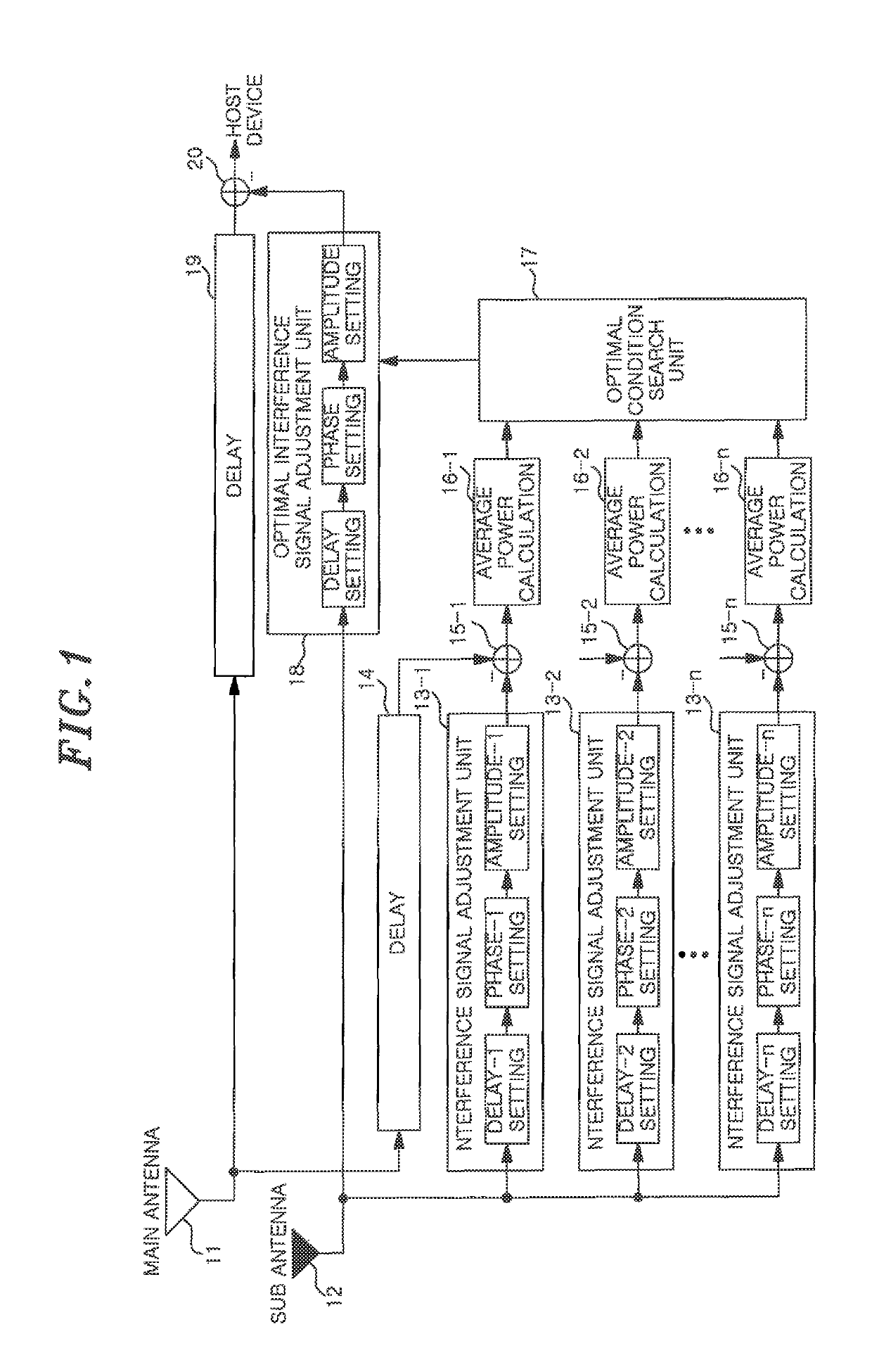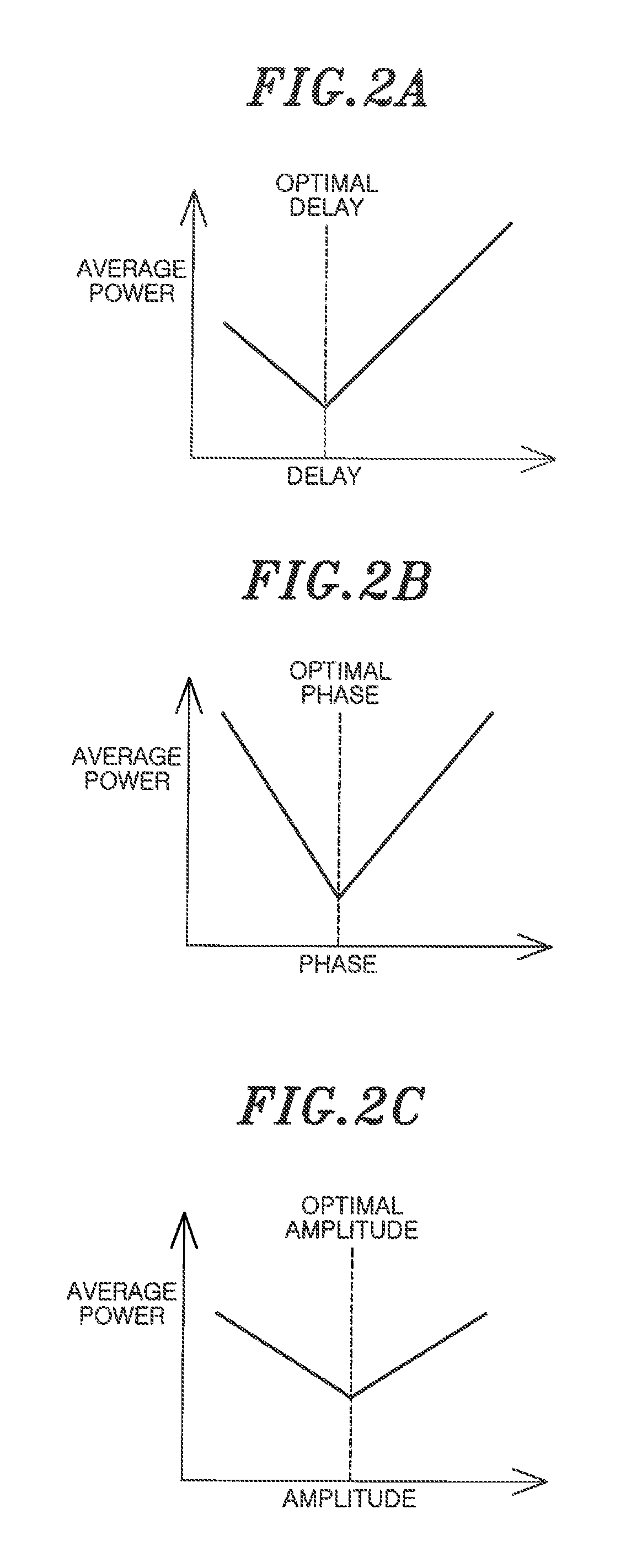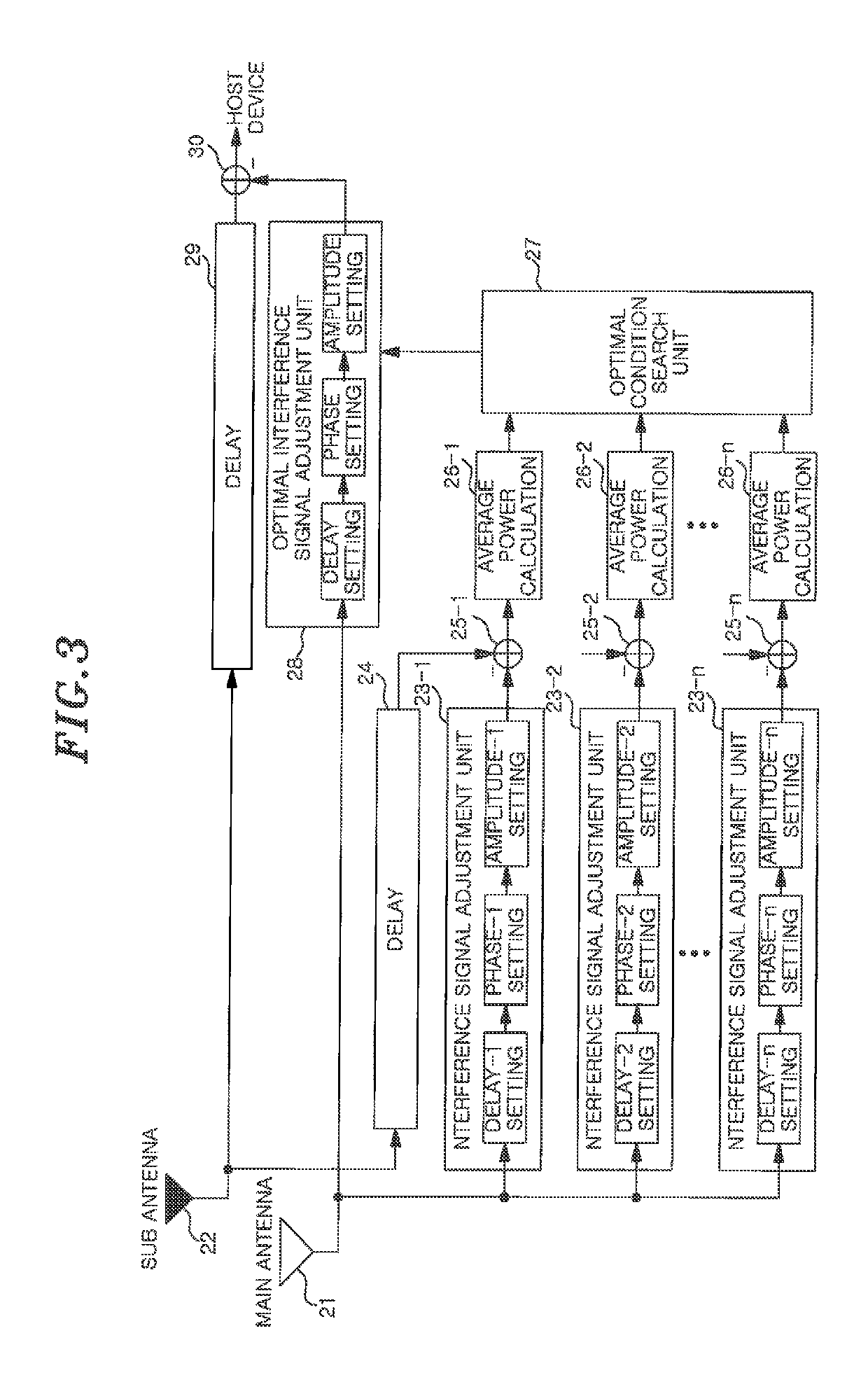Noise canceller device
a noise canceller and noise technology, applied in sustainable communication technology, climate sustainability, high-level techniques, etc., can solve the problems of deterioration of communication environment, difficult to remove interference signals by filters or the like, and interference signals that cannot be accurately and stably removed, etc., to achieve the effect of reducing interference signals, reducing interference, and improving accuracy
- Summary
- Abstract
- Description
- Claims
- Application Information
AI Technical Summary
Benefits of technology
Problems solved by technology
Method used
Image
Examples
first embodiment
[0035]As shown in FIG. 1, the noise canceller device (first noise canceller device) according to the present invention includes: a main antenna 11, a sub antenna 12, a plurality of interference signal adjustment units 13 (13-1 to 13-n), a delay unit 14, a plurality of adders 15 (15-1 to 15-n), a plurality of average power calculation units 16 (16-1 to 16-n), an optimal condition search unit 17, an optimal interference signal adjustment unit 18, a delay unit 19, and a cancellation unit 20.
[0036]The cancellation unit 20 is connected to a host device that performs information processing of a signal.
[0037]The respective components of the first noise canceller device will be described.
[0038](Main Antenna 11)
[0039]The main antenna 11 receives a desired signal, specifically a wireless signal of a cellular phone. However, an interference signal (leakage signal from a BS antenna) of another system is mixed in the main antenna 11. The main antenna 11 corresponds to a first antenna to be descr...
second embodiment
[0096]Next, a noise canceller device (second noise canceller device) according to the present invention will be described with reference to FIG. 3. FIG. 3 is a block diagram showing a configuration of the second noise canceller device.
[0097]In the above-described first noise canceller device, the delay, the phase and the amplitude of the signal received by the sub antenna 12 are adjusted. However, in the second noise canceller device, the interference signal included in the signal received by the main antenna 11 is removed by adjusting the signal received by the main antenna such that the components of the interference signal included in the signal received by the main antenna 11 become close to those of the interference signal received by the sub antenna 12.
[0098]As shown in FIG. 3, the components of the second noise canceller device are the same as those of the first noise canceller device shown in FIG. 1 except that the signal received by the main antenna 21 is divided into a plu...
third embodiment
[0108]Next, a noise canceller device (third noise canceller device) according to the present invention will be described with reference to FIG. 4. FIG. 4 is a block diagram schematically showing the third noise canceller device.
[0109]The first and the second noise canceller device adjust the parameters of the delay, the phase and the amplitude, calculate the average power, and obtain the optimal value. However, the third noise canceller device sequentially searches the optimal values of the delay, the phase and the amplitude.
[0110]As shown in FIG. 4, the third noise canceller device includes the main antenna 31, the sub antenna 32, the delay condition search block 33 for searching for an optimal delay condition, the phase condition search block 35 for searching for an optimal phase condition, an optimal amplitude search block 37 for searching an optimal amplitude condition. The third noise canceller device further includes an optimal delay adjustment unit 34, an optimal phase adjust...
PUM
 Login to View More
Login to View More Abstract
Description
Claims
Application Information
 Login to View More
Login to View More - R&D
- Intellectual Property
- Life Sciences
- Materials
- Tech Scout
- Unparalleled Data Quality
- Higher Quality Content
- 60% Fewer Hallucinations
Browse by: Latest US Patents, China's latest patents, Technical Efficacy Thesaurus, Application Domain, Technology Topic, Popular Technical Reports.
© 2025 PatSnap. All rights reserved.Legal|Privacy policy|Modern Slavery Act Transparency Statement|Sitemap|About US| Contact US: help@patsnap.com



